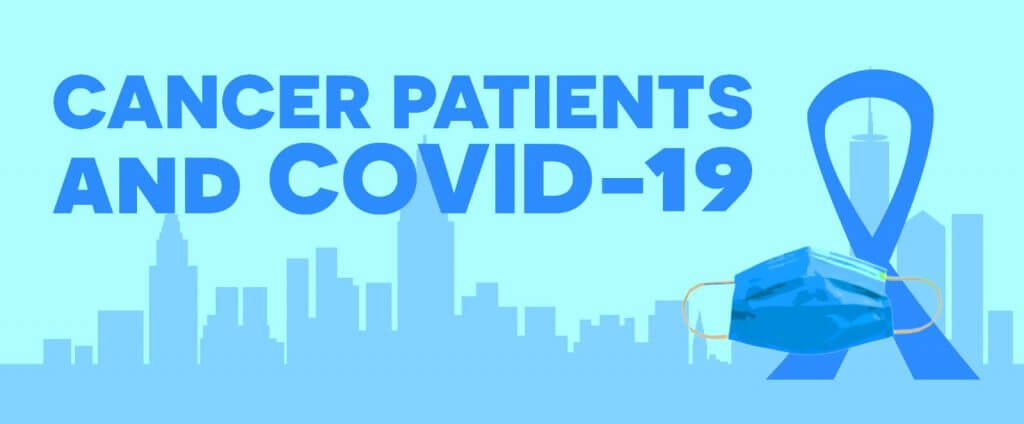Illustration by Nicole Nedeff
The effects of the coronavirus on patients’ lives in hospitals, their treatments and communication with their doctors.
“During the height of the COVID-19 crisis in New York, most hospitals in NYC essentially became COVID hospitals”.
The COVID-19 pandemic has raised many questions: who is more likely to become infected with the virus? Is anyone at more risk than others? What symptoms are more prevalent? Despite these alerting concerns, questions surrounding the effect of the virus on cancer patients has left us uncertain. The unpredictability of this virus has left patients in a constant state of panic. In an exclusive interview with a professor of radiation oncology and associate director of the Tisch Cancer Institute at Mount Sinai Hospital in New York City, Dr. Karen Goodman gave us broad insights into how COVID-19 has affected her patients’ lives.
During the early rise of the virus from March through May, the cancellation of many medical procedures and treatments had a devastating impact upon cancer patients. Exposure to the virus would put the patients at risk, thus only essential care would be given, but for everything else, patients could not come into the hospital.“ We could not do surgeries, even for cancer patients, for several months, delaying life-saving operations for many patients’ ‘ said Dr. Goodman. She continued to address the bigger implications, such as those affecting elderly patients and others who would need more direct care and communication, she said “During the height of COVID, we could not have any visitors in the hospital with patients. It was so sad for our elderly patients, especially people who could not speak English. They had to come to see the doctor or be admitted to the hospital without their family members there to help them”. Conditions may seem to have improved now, but patients continue to face such complications in their care, “Now we are allowing only one visitor to come in with our patients to the outpatient clinics and usually only one person can come to the hospital room at a time to visit. This makes it much more difficult and scary for these older patients to come to see the doctor or be admitted to the hospital”. Changes have certainly been had in patients’ lives since the outbreak.
The communication barrier between patients and doctors and patient anxiety surrounding their prognosis has thus only been exacerbated. Dr. Goodman however noted that since then, doctors and their patients have been communicating via Telehealth visits, “where the patient has a video visit with their doctor, instead of having to travel to the clinic. This makes it much more convenient for patients and reduces the risk of having them travel by public transportation or have to come to a busy waiting room in a clinic”.
Recent research into the virus seems experimental and ever-evolving. The effect of the coronavirus upon different individuals varies and we asked Dr. Goodman about the particular risks facing cancer patients.“Cancer patients are not necessarily more likely to contract COVID, only if they are not taking the standard precautions like wearing a mask, but if they do become infected, they could have more complications. There are studies that now show that COVID-19 is more likely to be associated with severe complications and death in cancer patients than in the general population, particularly those with leukemias”.
Addressing the virus and its tolls on hospitals globally raises more questions. What sort of impact has the pandemic had on cancer treatments quantitatively? “During the height of the COVID-19 crisis in New York, most hospitals in NYC essentially became COVID hospitals.” said Dr. Goodman, addressing this, “We were no longer doing surgeries, so there were no patients staying in the hospital after a surgery, people were not going out, so there were very few trauma patients, almost all of the patients in the hospital had COVID. We stopped doing many cancer therapies that required inpatient hospitalizations, like bone marrow transplants”.
As the pandemic continues and the virus persists, we need to be united in looking out for patients and the people around us. These can be our friends, loved ones, or other members of our community. People who are going through the same anxiety and stress as everyone else in these trying times on top of the harrowing experience of fighting cancer. Staying informed and safe, combating misinformation, and lending a helping hand even in the smallest ways can make a world of difference all together. Together, we will rise above this.

